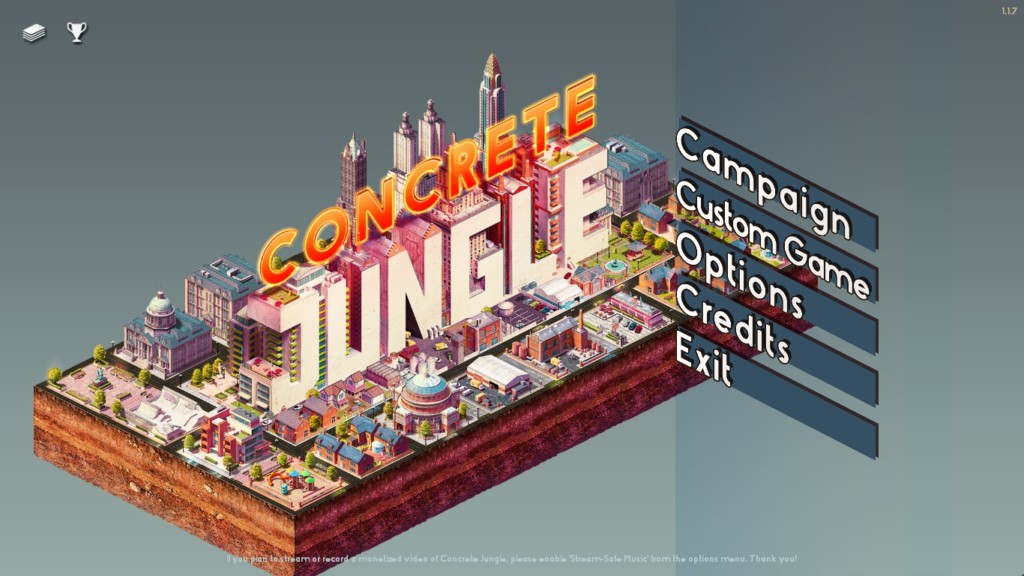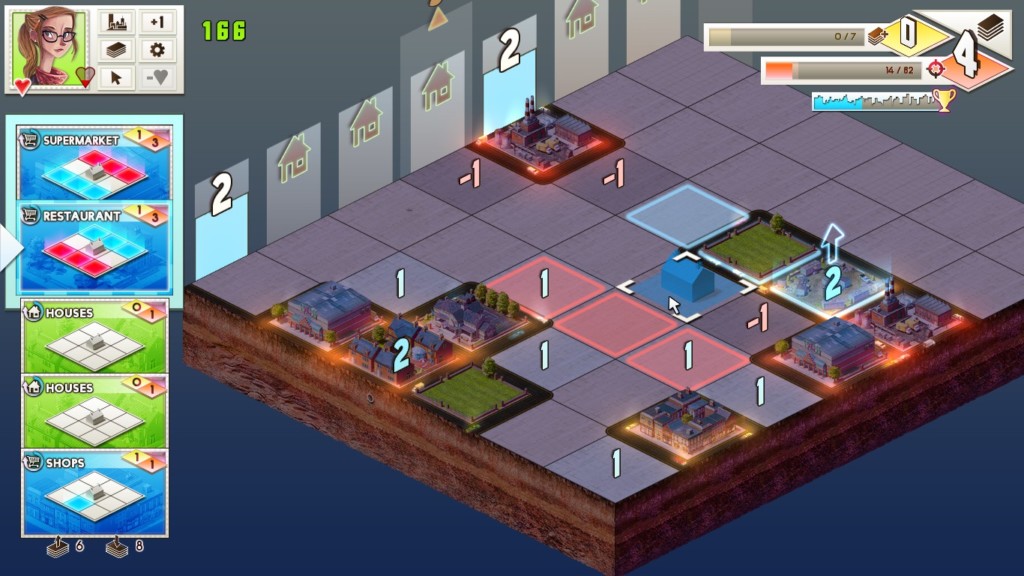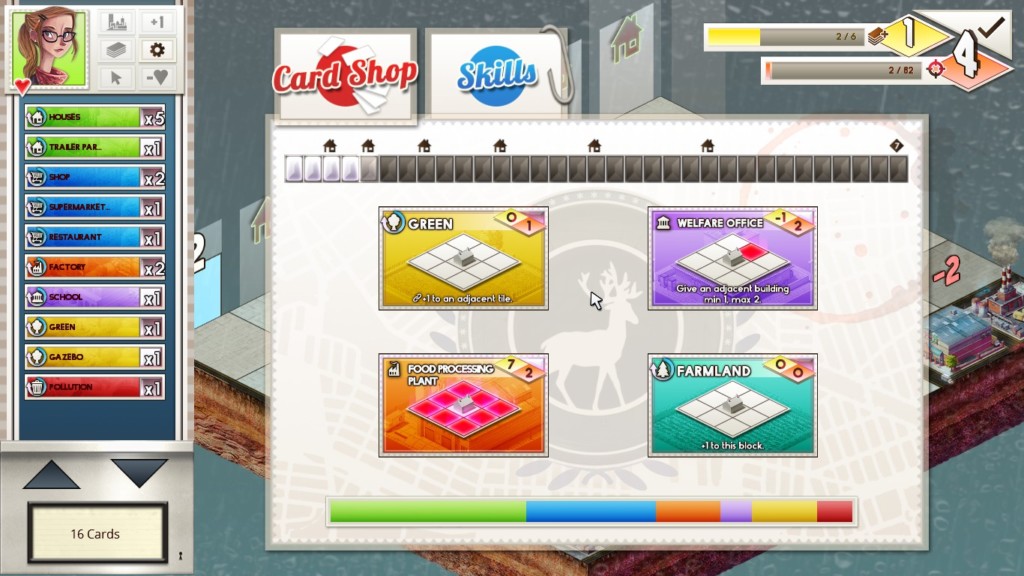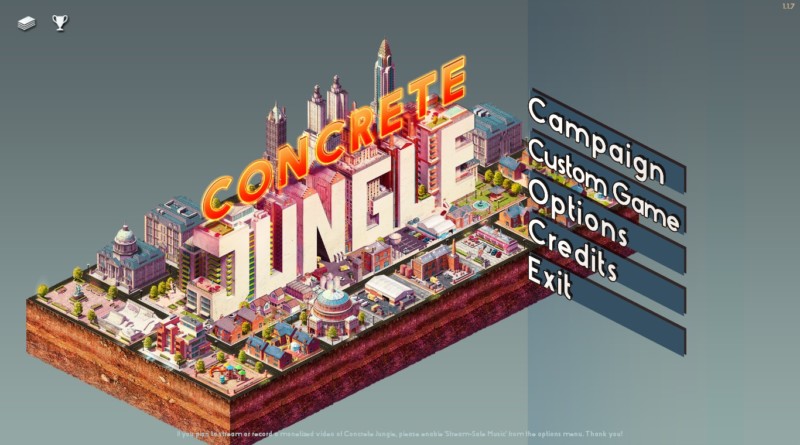Concrete Jungle

Concrete Jungle is a random game that I got from that Clickteam Fusion humble bundle that Aaby shilled out a couple weeks ago. Its basically a puzzle game built around cards and deck building with a vague city building theme. It’s fairly good, better than I thought it would be, and is currently the game with the most playtime out of the whole bundle. Then again, half those games apparently don’t run on Windows 10, but that’s a rant for another time.
CJ starts you off with a grid and a small deck of cards. Each card is a building you place on the grid, and they typically either add or subtract points from adjacent tiles, or have other interesting effects when played. To secure the positive points on the board, you place buildings that collect points, typically house cards or other residential buildings. The goal is to clear out columns, sort of like Tetris and rows, by securing at least three points on the column, although only the leftmost column can be cleared. Failure to clear a column, usually by filling all possible tiles, means you must lose a life to force a clear, and after three lives lost you are an utter failure. Also, the three point requirement grows over time, as it increases whenever the Expenditure Bar is filled the goal for all future columns gets incremented, and almost all buildings increase Expenditures.

The board can quickly become quite messy. You can only use the top two cards at any time, so often you need to just find a place for more negative buildings like factories or just buildings you don’t immediately need. A lot of future planning is needed to ensure you meet the goal of each column, and don’t screw yourself over by blocking off a column ahead. There’s also big points bonuses if you can set up a chain and clear multiple columns at once.

The deck building aspect comes into play whenever you fill the Economy Bar, which some buildings increase. Each filling of the Economy Bar gives you the choice of two options, either a new card for your deck or something from the skill tree. The skill tree can give you special perks or unique buildings, and changes based on which character you play. The starting character has access to strong park cards, or the ability to clear a column without losing a life once. With cards you have a random choice of four, and each time you pick one you advance a tech bar, which means better cards in the future, as well as being able to pick the later things in the skill tree. You also occasionally get free house cards to ensure they come up often enough.
From the cards in the above screenshot, the green grants one bonus to any one adjacent tile I choose, which is kinda nice since its omni-directional rather than a specific orientation like most cards. The welfare office can make a house scoring negative points positive, but that house can’t score more than two, and the office can only be played once. The food processing plant is full of negative points, but its seven Economy points means upon playing it I can grab another card. It too can only be played once. The farmland boosts other connected farm buildings, but does nothing else, and in that particular game I don’t have any other farm buildings in my deck.
Concrete Jungle is one of those easy-to-pick-up-hard-to-master sort of thinking games. I like that I can just pick it up for a quick game and set it back down whenever, when I want to play something but don’t have an hour to dedicate to something like Overwatch or From the Depths. The random deck building, multiple characters, and expanding variety of cards leads to a good amount of replayability. There’s also a short campaign that teaches you various aspects of the game, as well as a head-to-head mode where multiple players vie for points on the same board. Overall, I recommend considering Concrete Jungle.
